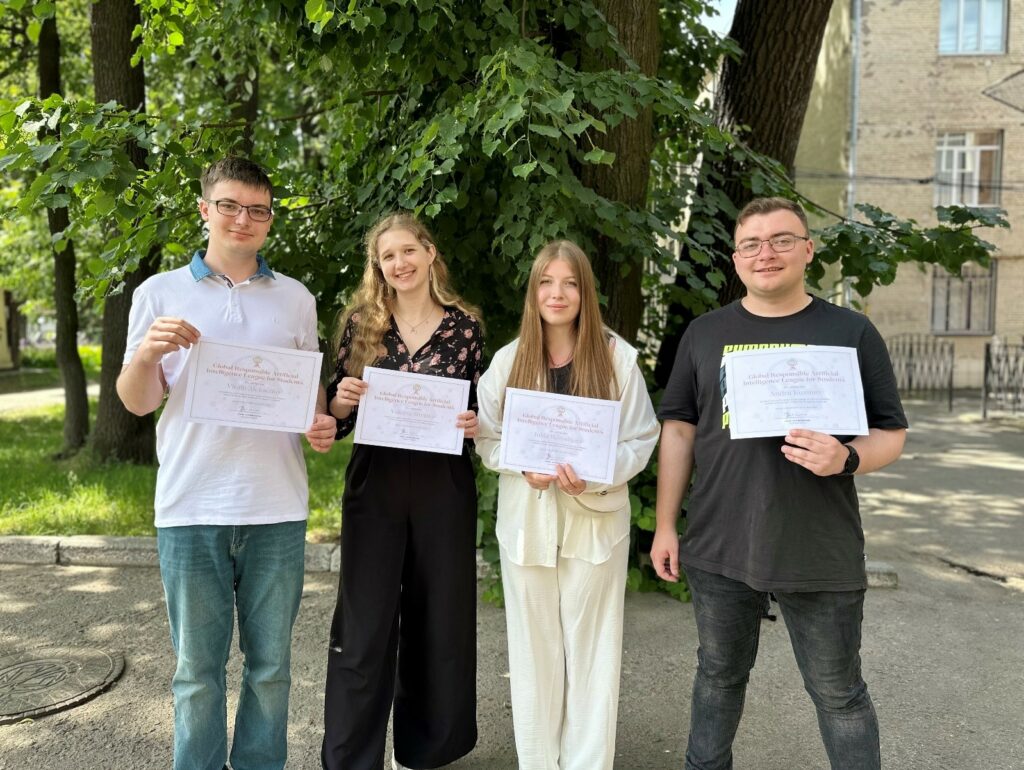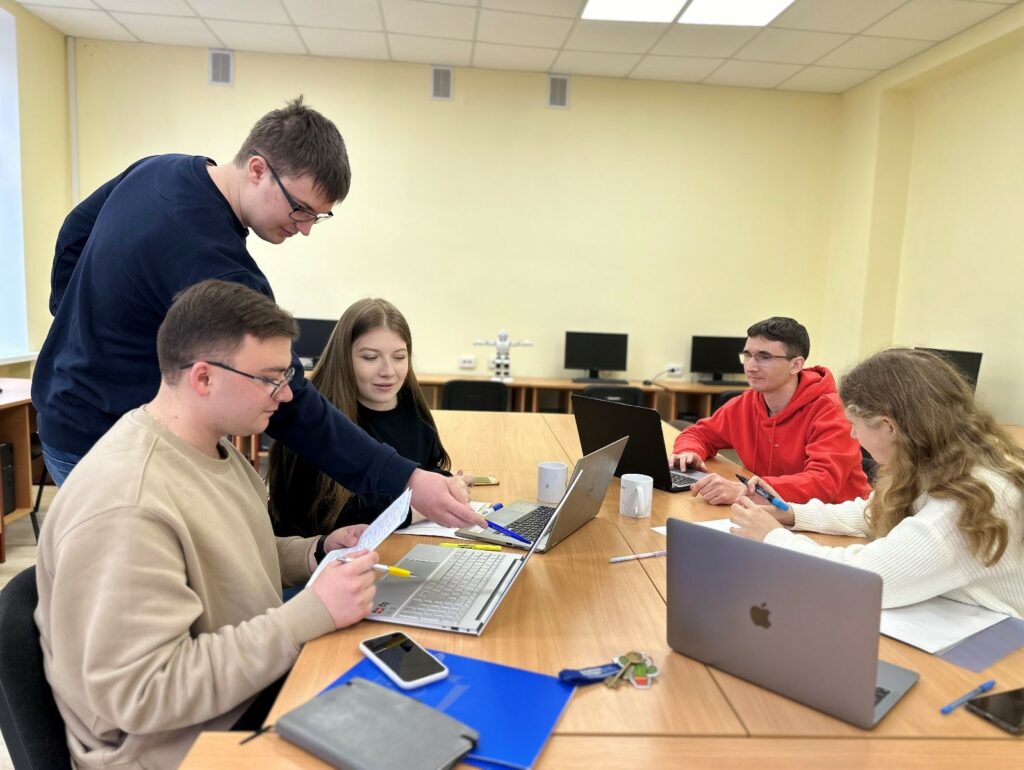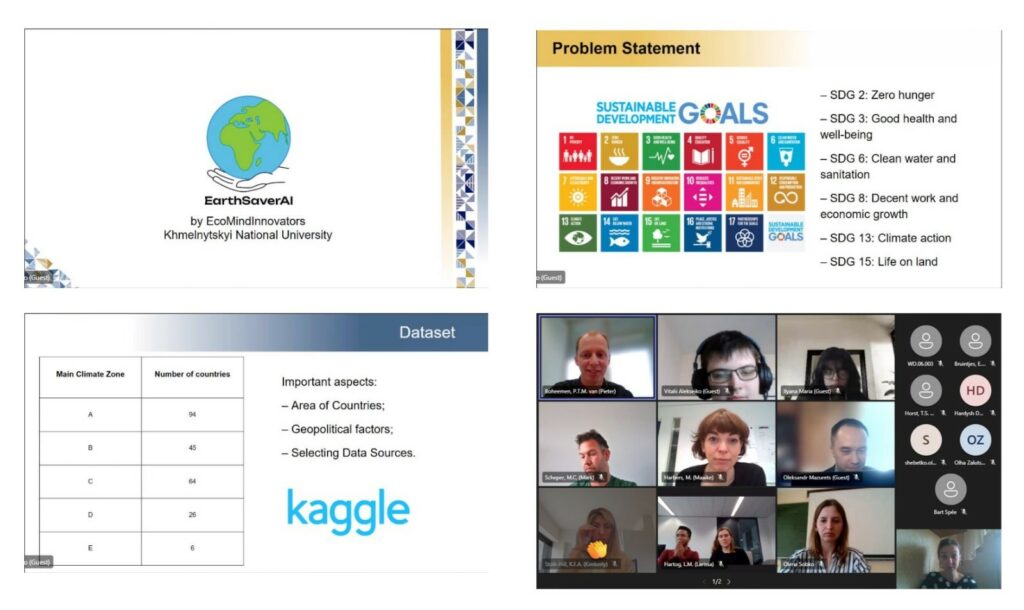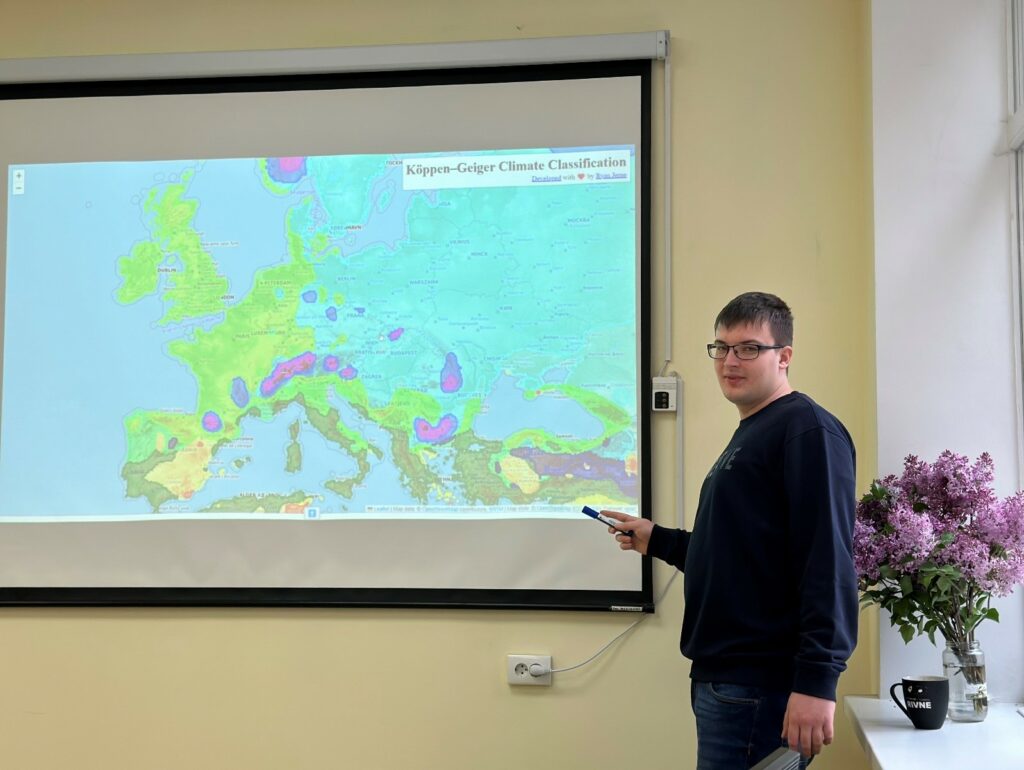We are thrilled to announce the outstanding success of Khmelnytskyi National University students at the esteemed international Grails - Global Responsible AI League for Students competition. Organized by the Rotterdam University of Applied Sciences, this event showcased responsible IT solutions leveraging artificial intelligence. Represented by two teams, Khmelnytskyi National University secured top positions, exemplifying high levels of professionalism and innovation.

The Grails competition emphasizes the creation of responsible and ethical IT solutions using artificial intelligence. The competition included several stages:
- A kick-off meeting with the competition founder, Pieter van Boheemen, where participants were introduced to the rules and ethical principles of AI application.
- Lectures on the role of AI in society.
- Project preparation and recording of demonstration videos.
- Project presentations.
This comprehensive approach allowed participants to deeply engage with the topic of responsible AI use and develop unique projects.
The first place was awarded to the "Vector-KhNU" team from the Department of Computer Science. The team members included:
Oleksandr Mazurets (Ph.D., Associate Professor—team leader, coordinator from the university)
Maryna Molchanova
Olena Sobko
Olha Zalutska
Daryna Hardysh
Olha Shebetko
Maria Ilyana
Pavlo Shevchuk
Bohdan Denysenko
Volodymyr Didur
Oleksandr Hladun
Rostyslav Dydo

Their project, "Neural Network Tools for Impartial Detection, Classification, and Assessment of Cyberbullying in Text Messages," aims to create a safe and tolerant communication environment to prevent aggressive behavior and conflicts.

The judges praised the innovative approach and thorough handling of technical and ethical aspects.
" The winning team focussed on detection and assessment of cyberbulling, which is not a trivial challenge. The team was successful in developing a novel approach, which demonstrates outstanding innovative and creative capabilities of the team. Datasets were acquired, algorithms assessed, and logical trade-offs made. All technical as well as ethical aspects were addressed thoroughly and were presented in a structured and convincing manner," said Pieter van Boheemen.
The "EcoMindInnovators" team from the Department of Computer Engineering and Information Systems secured an honorable second place.The team members included:
Vitaliy Alekseyko;
Andriy Kuzmin;
Valeria Shvaiko ;
Yulia Ilchyshyna ;
Their scientific advisors were Ph.D., Associate Professor Olga Pavlova, and Senior Lecturer Yehor Ishtvan.


They presented "EarthSaverAI," a web-based application powered by AI for predicting temperature changes in various climatic zones.

This project impressively integrates modern technologies and ethical aspects to address current global challenges.
Pieter van Boheemen noted, " The judges were very pleased with the achievements of the teams from Khmelnytskyi National University. The Earthsave team that came second had clearly put much efforts in exploring the ethical considerations of the project, and impressively effectively converted a societal need into a functional application. The project was well placed in the frame of global challenges, EU AI Act as well as fundamental aspects such as interpretability and transparency. Even the environmental impact of the application itself was taken into consideration."

Khmelnytskyi National University expresses sincere gratitude to all students and teachers who participated in the Grails competition. Your diligent work, perseverance, and pursuit of excellence have been the key to this success. This victory is a testament to the high level of preparation of our students, and your achievements will inspire future generations to new accomplishments and discoveries. We wish you continued success, new scientific achievements, and the realization of your boldest ideas! We are also grateful to the organizers, especially the Rotterdam University of Applied Sciences and Pieter van Boheemen, for providing an incredible experience. We look forward to the competition in 2025.